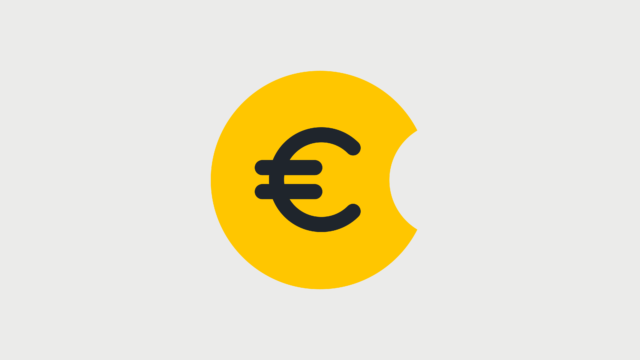Gossip Rant Chat Wa gwan Breaking Scandal Hot off the press Bulletin Dispatches Nachrichten

Apple—more than just a Super App?
When Apple speaks, people listen. Shares in the tech giant climbed to record highs last week following CEO Tim Cook’s latest announcement. While it’s AI that continues to make most of the headlines—and whether Apple has entered the game a little too late—we were more struck by the breadth of their innovations and what they signify.
For years, the company’s direction of travel has hinted at this outcome. But the raft of new features that Cook unveiled during his keynote at WWDC markedly ups the ante. Slowly but surely, Apple is cementing its legacy as a Super Brand.

The Super Brand strategy
Before we dig any deeper, let’s get to grips with Super Brands. Not too dissimilar from a Super App—that all-in-one powerhouse that continues to elude big sections of fintech society—a Super Brand can be distinguished in that it offers “significant emotional and/or physical advantages over its competitors which (consciously or sub-consciously) consumers want, recognise, and are willing to pay a premium for.”
In other words, the cream of the crop. The bee’s knees. The cat’s pyjamas. Etcetera, etcetera. Now, the big question is—why? Is it simply the case that Apple is adding to its storied history of innovation? If so, why now? It’s no secret that the juggernaut has suffered from slowing sales in the last year. The cynical view holds that these developments are an attempt to re-exert a firm grip on the market. A more optimistic one would be that Apple has invention and boundary-pushing baked into its core. One commentator who subscribes to that view is Marcel van Oost, who claims that the updates showcase “their commitment to ‘thinking differently.’”
Whatever the answer may be, we know one thing for sure—at long last, Apple is starting to let its walls down.

Software, not hardware
At this year’s WWDC, the focus was very much on services rather than devices—across AirPods, Macs, phones, watches, and the rest. The goal? A deeper level of customer-centricity, spearheaded by Siri’s ChatGPT-enabled AI enhancements.
Elsewhere, users will be able to generate in-app images, create their own emojis, and customise their home screens with a greater degree of creativity. Interestingly, Apple is deploying summarisation—which has caused quite a stir in recent months (see: Google search results)—indicating that it won’t be deterred by bad press in its quest to become top dog in this growing field.
Where previously Apple had lived and died by its “do it our way” approach—refusing to bow to public pressure for a universal power cable, for example—now it seems a bit more comfortable with cherry-picking from across the fintech and tech ecosystem to bolster its main offering and consolidate its Super Brand status. Not so long ago, Apple was a walled garden—denying external vendors the chance to threaten its supremacy. Over the years, it came to be seen as a brand that simply did things the right way. Rather than reinventing the wheel, Apple just smoothed out some of the kinks.
But things are changing. In the words of Allison Johnson: “The walls of Apple’s garden are tumbling down.”
APPLE STATISTICS
global online payments market share (Source: Capital One Shopping)
estimated Apple Pay users worldwide in 2024 (Source: Forbes)
transactions quarterly (Source: Forbes)

Coveting true wallet status
Nothing has captured public interest quite like whether or not Apple wants to be a bank. The company’s fintech designs are certainly no secret, with consumers observing they’ve moved “further and further into the financial services business for over a decade now.”
Among its suite of updates, Apple is retooling its flagship digital wallet to build a more holistic custody solution for users’ digital assets. Event tickets, for example, now come with complementary venue maps, parking details, in-seat food delivery, weather forecasts, and more—while Apple Pay users can access BNPL loans through Affirm.
In some senses, the company has recognised its limitations and is taking big steps to remedy them by strategically partnering with a number of leading third parties—with BNPL stalwart Affirm chiefly among them. In fact, it recently discontinued its Apple Pay Later feature, ceding responsibility for that particular feature to Affirm.
Another notable feature is Tap to Cash, which lets iPhone users make P2P transfers by holding their phones together. Is it a groundbreaking new innovation or a moment of delight for delight’s sake? Your mileage may vary. It’s interesting to note that, as Apple finally eclipses PayPal as the digital wallet of choice, it unveils a payment feature that seeks to challenge the latter’s market position further.

The global problem
If Apple is to see its financial plans through—however far they go—it will need to navigate complex regulatory waters around the world. By necessity, the company’s recent announcements have skewed US-centric. Apple Cash, for instance, is only available in the US, with FDIC member Green Dot Bank on provisioning duties. At the same time, Apple Wallet has a much more significant foothold in the EU and UK markets than it does in North America—thanks to Open Banking.
The company also faces scrutiny from the UK banking market, which is railing against the perceived “unfairness” of Apple leveraging its massive amounts of customer and transaction data in any future plans. With rumours swirling that the company is planning to bring its credit card across the Atlantic, a collection of financial institutions has issued a letter to the Financial Conduct Authority (FCA).

The walls are coming down
Apple has long been accused of keeping everything squirrelled away in a walled garden. But these announcements pour a bit of cold water on that perception. Through integrations with Affirm and ChatGPT, the tech giant is finally letting some light in—though, it must be said, through the lens of Apple.
What will be interesting to see is where the company goes next. According to The Street: “The next five years might witness the emergence of innovative products that—although in their early stages and dependent on market dynamics—could significantly alter the landscape and add value to the Apple thesis.”
Further expanding its wallet capabilities could be high on the agenda. For instance, public transport is much bigger in non-US markets. Perhaps season tickets or passes managed exclusively through Apple Wallet could lead to an uptick in usage in these markets.
Whatever the future may hold, we can be confident that the direction of travel for Apple is toward unified experiences through partnership—but delivered under the familiar Apple brand.
LET'S TALK
If you want to see where we can take your business, or anything else–why not drop us a line at info@thefoldcreative.com.